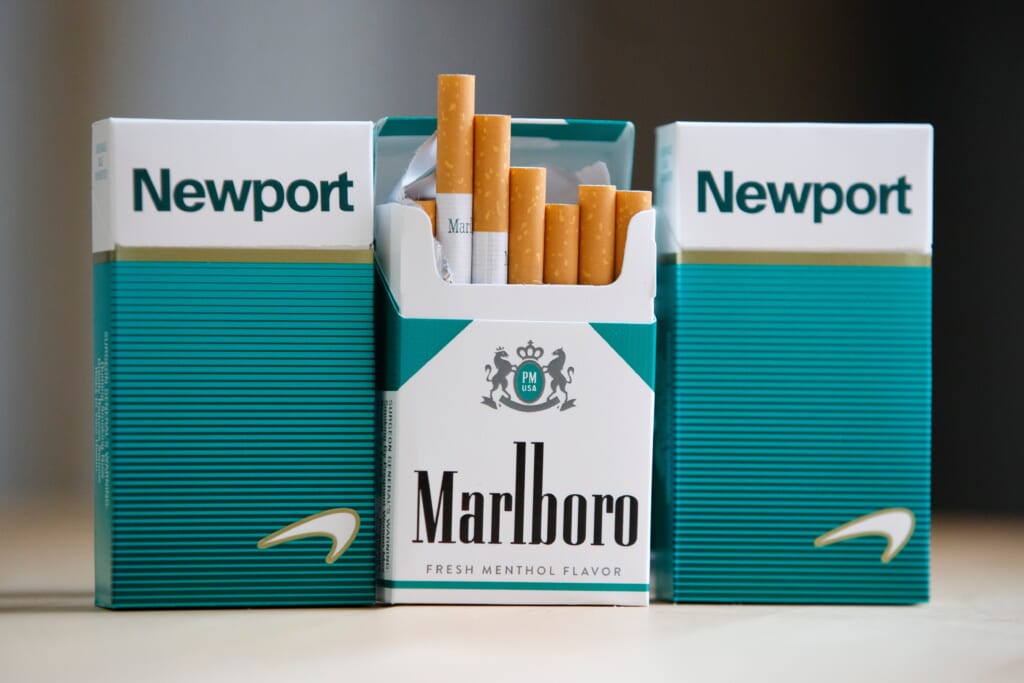Despite Biden’s ban of menthol cigarettes, getting Blacks to quit smoking remains a challenge
Exclusive: Health and Human Services Secretary Xavier Becerra says the Biden administration wants to "save lives in the Black community."

President Joe Biden is taking aim at the tobacco industry with another racial equity move to ban menthol cigarettes.
The administration’s decision stands to be a life-changing proposition, especially in the Black community, which is harder hit with nicotine addiction than other groups.
Read More: Amid calls from Black health advocates, Biden administration to ban menthol cigarettes

In 2009, the Family Smoking Prevention and Tobacco Control Act was signed into law. It gives the Food and Drug Administration authority to regulate the manufacture, distribution, and marketing of tobacco products.
The FDA, which is under the purview of the Department of Health and Human Services, said its ban on menthol aims to remove the substance from tobacco cigarettes as the science suggests it contributes to addiction by hiding the impacts of smoking on the body.
“When you inject menthol into cigarettes, you cause people to want to smoke them more and you cause them to stay on the smoking habit longer,” HHS Secretary Xavier Becerra told theGrio. “This menthol cloaks some of the harshness of the cigarette of the tobacco and your brain feeds off of the menthol as well.”

The Centers for Disease Control Prevention (CDC) found tobacco use is a major contributor to the three leading causes of death among African Americans: heart disease, cancer, and stroke. Additionally, tobacco increases the risk of developing diabetes by 30–40% in cigarette smokers.
Figures worsen when you add in the menthol component of tobacco cigarettes to the concept of addiction in the Black community.
Secretary Becerra added, “the science has shown it to us, it’s time to move because the consequences of cigarette and menthol cigarettes [are] that more and more people are continuing to smoke, can’t get off it, and they die.”
Stopping the plague of menthol cigarettes and addiction in the Black community is a complex task. Studies find when Black Americans want to quit it is not easy.
According to the CDC, the marketing and promotion of menthol cigarettes have been targeted heavily toward African Americans through culturally tailored advertising images and messages.

The results of this specific advertisement yield the use of menthol cigarettes by over 7 out of 10 African American youth ranging from 12-17 years old. Compared to other racial and ethnic groups, Black adults have the highest percentage of menthol cigarette use, and they struggle the most to quit.
The CDC found that despite more quit attempts, African Americans are less successful than white and Hispanic cigarette smokers because of less use of counseling and medication.
Secretary Becerra applauded President Biden for his efforts and maintained that the administration is seeking opportunities to relieve the Black community of this addiction.
“We want to save lives in the Black community,” said Secretary Becerra, “get menthol out of cigarettes if you want to help people, let their kids become the professionals and the successes for this country and leaders of America, get them the care they need.”
Have you subscribed to theGrio’s “Dear Culture” podcast? Download our newest episodes now!
TheGrio is now on Apple TV, Amazon Fire and Roku. Download theGrio.com today!
More About:Politics









